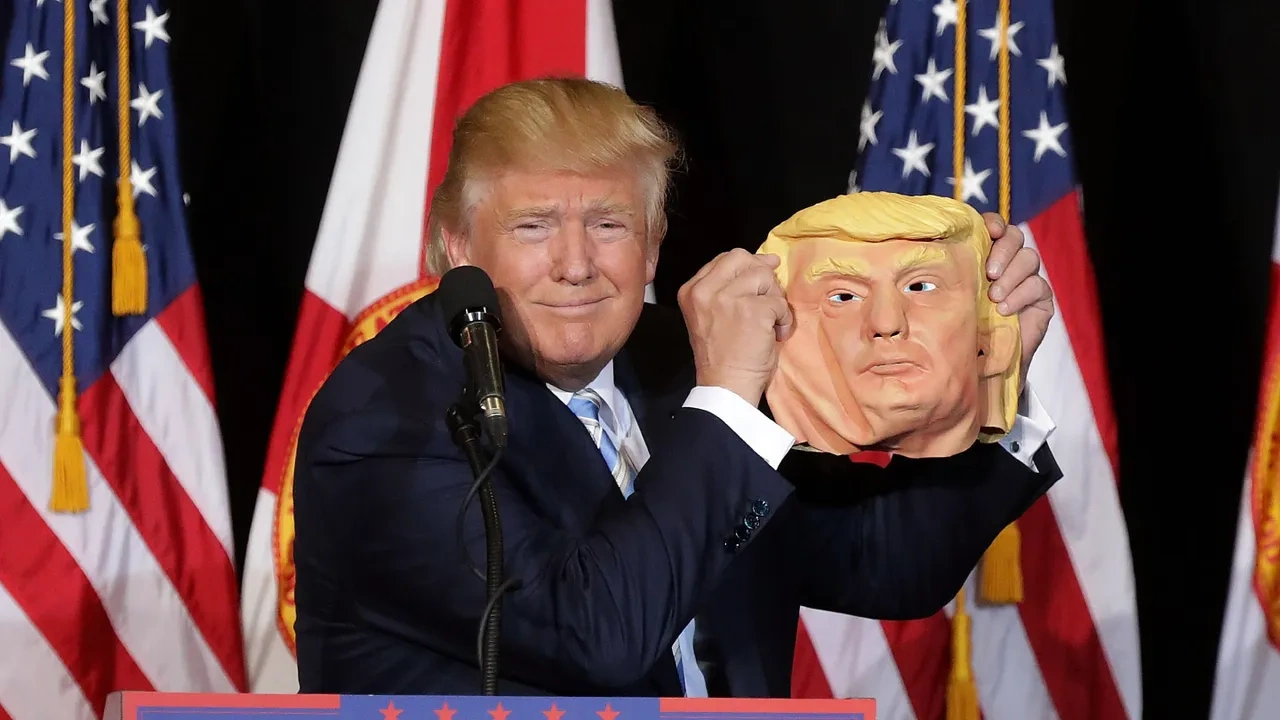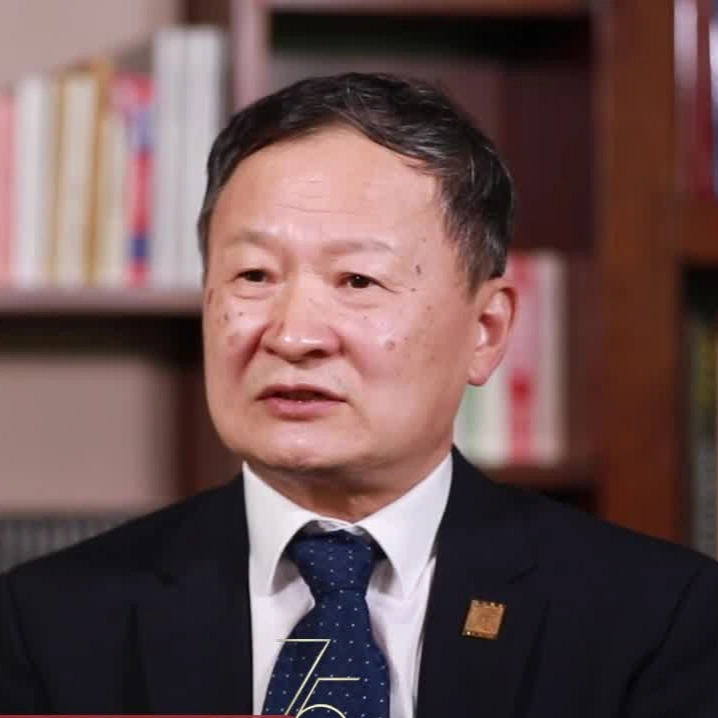Trump’s Taiwan Policy Pleases Beijing

On November 6, 2024, Donald Trump once again won the U.S. presidential election. Throughout his campaign, “tariffs” remained a central theme in his approach to China, including his stark warning: “If you (China) go into Taiwan, I’m sorry to do this, I’m going to tax you at 150% to 200%.”
In response, Chinese strategist Professor Wang Xiangsui dismissed Trump’s threat as ineffective and even advantageous for China. According to Wang, Trump’s stance reveals two key points:
First, it highlights that Trump may be a more predictable and manageable leader for China than Biden.
Trump’s approach reflects a business-centric mindset, where he views economic pressure as the ultimate and sole solution to all issues. If a 100% tariff hike doesn’t work, his strategy suggests simply raising it to 200%, 300%, and so on until he achieves the desired outcome. However, for China in 2024, such tactics are not fundamentally threatening. This is because China effectively countered similar pressures during the previous trade war, employing two key strategies that could be replicated and even expanded.
The first strategy is to impose tariffs on U.S. products of equal value. If the U.S. places tariffs on $500 billion worth of Chinese imports, China would respond with tariffs on $500 billion worth of U.S. imports, ensuring both sides share the same economic burden.
The second strategy involves “proportional tariffs.” When U.S. tariffs on Chinese goods exceed China’s imports from the U.S., China responds by increasing tariffs on the remaining U.S. imports in proportion to the trade deficit. For instance, if the U.S. imposes tariffs on $200 billion worth of Chinese goods, but China only imports $150 billion in U.S. products annually, China could levy an additional 40% tariff on existing U.S. imports. This tactic ensures that if Trump attempts to leverage the smaller U.S. market size to pressure China, American companies will face increasingly severe retaliation.
Moreover, as the U.S. industrial supply chain relies heavily on China, Beijing has identified strategic ways to leverage this dependency.
Take rare earths, for example. According to Reuters, China holds at least 85% of the global rare earth mining and processing capacity as of 2023. These rare earth elements—a group of lanthanide metals—are essential in manufacturing critical components for aerospace, lasers, and permanent magnets. Without China’s supply, the high-tech weaponry the U.S. depends on would face serious shortages.
Gallium is another crucial material in this equation. According to Sky News, the U.S. Geological Survey reports that China controls 98% of global gallium production, securing a near-monopoly. Gallium is vital for semiconductor manufacturing, especially in radar systems. On August 1, 2023, China announced export controls on gallium on China’s Army Day, which severely impacted the U.S. defence sector. These moves directly caused delays in the supply of gallium-dependent components for the U.S.’s F-35 stealth fighters and F/A-18E/F carrier-based fighters.
Thus, it is clear that China possesses numerous countermeasures in trade disputes and even holds critical leverage over the U.S. Trump’s tariff threats, which lack any real deterrent. If Trump continues to view tariffs as a means of controlling China, he will likely become even more predictable and easier for China to manage compared to Biden.
Secondly, this suggests that, compared to Biden, Trump has a more realistic sense of the limits of American power.
Trump’s comments effectively mark the first time a U.S. president has openly implied that the U.S. would not pursue military intervention in Taiwan’s reunification, relying instead on the “big stick” of tariffs. Compared to the Biden administration, which has reportedly considered plans for bombing Chinese coastal cities or imposing naval blockades, Trump’s stance appears far less aggressive.
A report by McKinsey shows that, as of 2023, China now leads global industrial production, accounting for 34% of the world’s manufacturing output. In comparison, data from the UK’s Centre for Economic Policy Research (CEPR) indicates that the U.S. share was only 15.9% in the same year—less than half of China’s output. Clearly, the U.S. is no longer the “arsenal of democracy” with half of the world’s industrial capacity as it was in World War II. Yet, it continues to engage with China as if still wielding the economic and military dominance it held during WWII and the Cold War, a strategy that is increasingly unlikely to succeed. Even if a more aggressive administration like Biden’s proposed military intervention, its deterrent effect would be limited.
Trump’s stance reflects an acknowledgment of America’s current capacities. As a businessman, he seems averse to war, especially one over Taiwan, knowing that military intervention in China’s Taiwan affairs would likely fail. Compared to being the “world police” ready to conduct carpet bombing on the other side of the world, he is just someone looking for excuses to coerce protection fees and fines, more like a “parking agent.”
The conflict in Ukraine illustrates this point further. The U.S. and its allies have imposed over 16,000 sanctions on Russia, yet Russia’s military and civilian sectors continue to function. European nations, meanwhile, find themselves paying more for Russian oil and gas.
Therefore, when the Chinese hear Trump’s remarks on the Taiwan issue, they are less likely to feel threatened and more likely to be offended. For them, reunification is a matter of China’s internal affairs, and the U.S. should simply mind its own business.
https://www.reuters.com/markets/commodities/chinas-rare-earths-dominance-focus-after-mineral-export-curbs-2023-07-05/
https://news.sky.com/story/how-china-is-using-its-power-over-minerals-we-need-for-every-day-technology-as-leverage-with-the-west-13240360
https://www.globaltimes.cn/page/202307/1293691.shtml
https://www.mckinsey.com/mgi/overview/in-the-news/the-global-economy-is-resetting-china-is-repositioning-itself-to-export-innovative-technologies-and-its-trading-partners-are-more-diverse
https://cepr.org/voxeu/columns/china-worlds-sole-manufacturing-superpower-line-sketch-rise#:~:text=Source:%20OECD%20TiVA%20database%2C%202023,three%20are%20newly%20industrialised%20economies.
https://www.bbc.com/zhongwen/simp/world-68400517





Anonymous
Trump is a businessman not a politician. Ask him if he is more interested in MAP or MAD? Will his business still be there if he prefers MAD? Americans are funny creatures.
Anonymous
I agree, Trump better for China. Thank you.